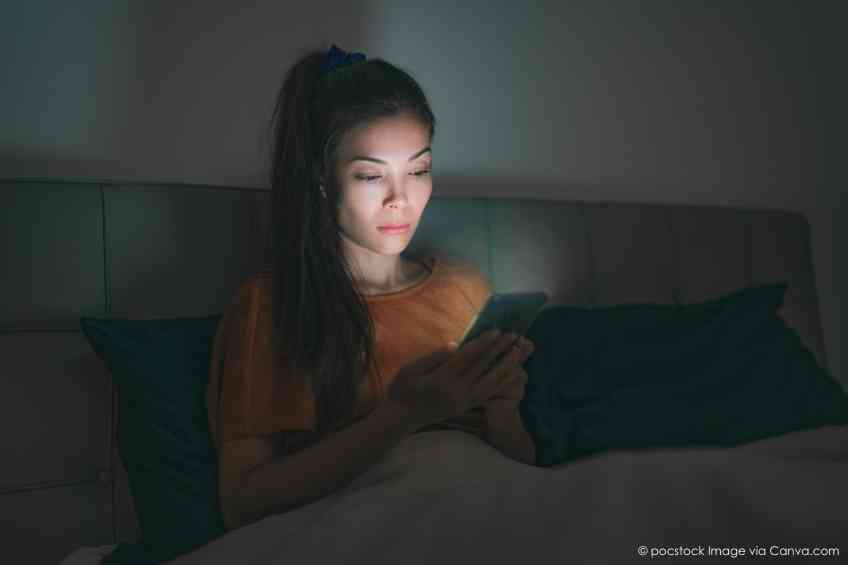By Sean Zucker –
Here is some bad news for anyone who proudly boasts the title of being a night owl. Recent research found that going to bed late at night on a regular basis undermines mental health.
These findings were the product of a study conducted by researchers at Stanford University. They were specifically focused on how individual bedtime preferences, as opposed to exact habits, impacted mental health. The team considered those who preferred to stay up late and sleep in, as well as those who liked to stay up while still setting an early alarm.
The core of this study involved surveying nearly 75,000 adults on their sleep habits and mental health. The respondents were asked about their chronotype, aka their preferred sleep timing, and their actual routine sleep behavior. But regardless of sleep predilection, one thing was clear: waiting too long to snooze was bad for mental health.
“We found that alignment with your chronotype is not crucial here and that really it’s being up late that is not good for your mental health,” reported Jamie Zeitzer, professor of psychiatry and behavioral sciences and the study’s senior author of the study. “The big unknown is why.”
Zeitzer was admittedly surprised by his team’s findings related to chronotype. He had previously studied cancer patients who slept against their chronotype and discovered that the act tended to decrease life span. “There is a bunch of data out there indicating that living aligned to your chronotype is very important,” he added. “That was our expectation.”
Out of the 73,880 total participants, 19,065 classified themselves as morning types, 6,844 as evening types, and 47,979 as neither. Their sleep patterns were then assessed in comparison to the entire group. Of those who slept earliest, 25 percent were termed early sleepers, the latest 25 percent coined as late sleepers and the middle 50 percent labeled as intermediate sleepers.
This method of categorizing sleep behavior, as opposed to exact bedtimes, held greater significance due to variations in sleep norms among different populations and lifestyles according to Zeitzer. “If we were doing this study in college students, one a.m. obviously wouldn’t be that late,” he said.
To determine the state of their participants’ mental health, Zeitzer’s team relied on their personal health records. Any mental or behavioral disorder listed in the International Classification of Disease, a globally used medical classification database maintained by the World Health Organization, was included and tallied.
Ultimately, both morning types and evening types who went to sleep late had higher rates of mental health disorders including depression and anxiety. Additionally, those who preferred the nightlife and stuck to the habit were between 20 percent and 40 percent more likely to have been diagnosed with a mental health disorder when compared to aspiring night owls who followed an early or intermediate sleep schedule. “The worst-case scenario is definitely the late-night people staying up late,” Zeitzer declared.
The Stanford researchers also pointed to poor health decisions and other harmful behaviors that are traditionally more common at night like suicidal thinking, violent crimes, alcohol consumption, drug use and overeating.
In response, Zeitzer advises people to look at one a.m. as a hard cut-off and recommends everybody go to sleep before then.
“If I had to hazard a guess, morning people who are up late are quite cognizant of the fact that their brain isn’t working quite right so they may put off making bad decisions,” Zeitzer added. “Meanwhile, the evening person who is up late thinks, ‘I’m feeling great. This is a great decision I’m making at three o’clock in the morning.”
Of course, Zeitzer was also quick to quell fears of isolated slip-ups. He explained that while it shouldn’t be the goal, staying up late from time to time is mostly harmless. So long as it is generally surrounded by nights in which an individual checks out at more reasonable times.
“Biologically speaking, it’s very much like a rubber band — you take a day off and you snap back to where your body wants to be,” he confirmed.










